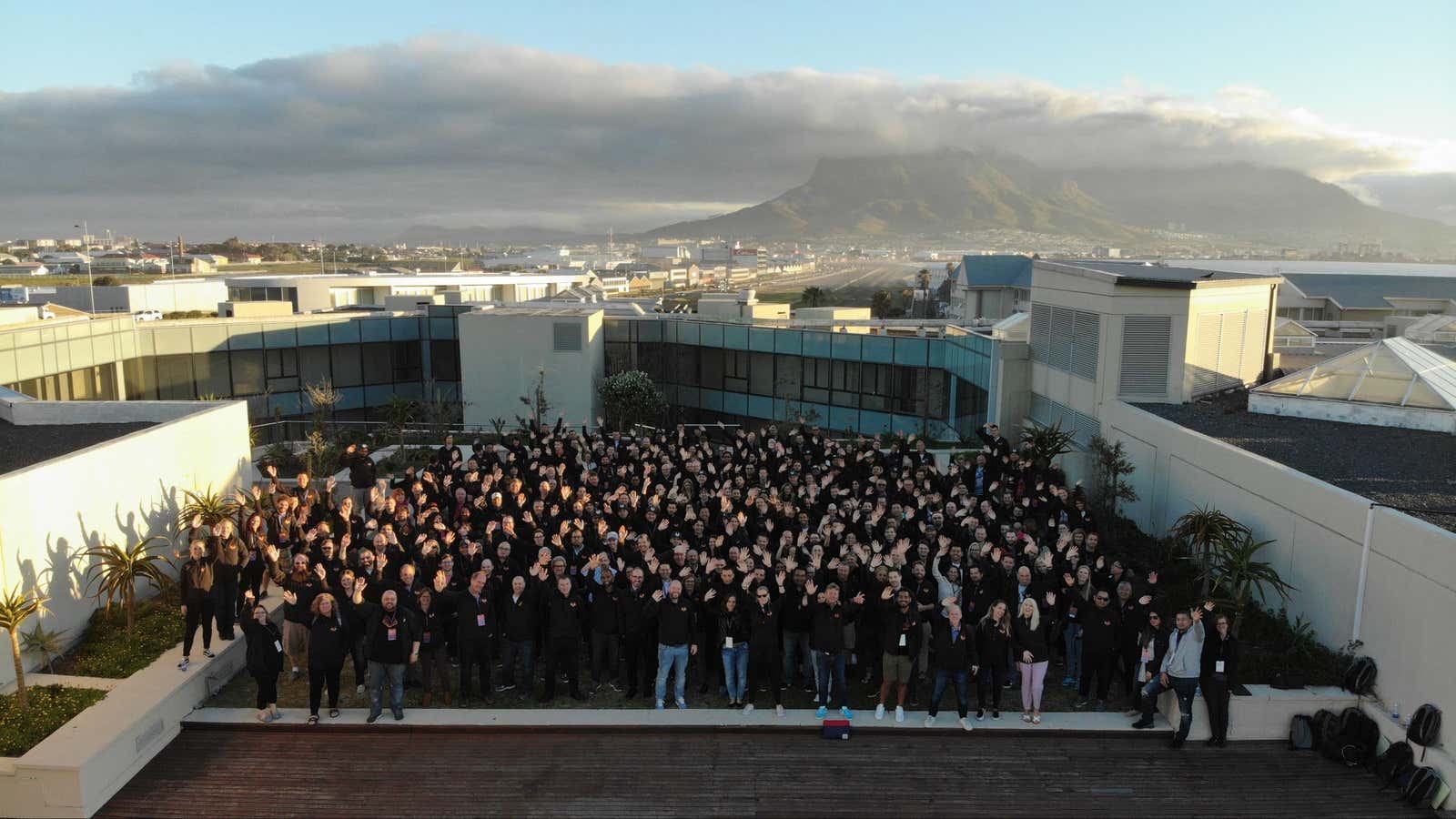In the high-tech gold rush, Gitlab, alongside competitors like Github and Bitbucket, is selling the shovels.
Gitlab builds the software tools that developers in turn use to build their own software. Though the company is pretty established (it just announced $100 million in series-D funding, valuing the company above $1 billion), Gitlab has no physical offices. With nearly 400 employees in 45 different countries, the team is 100% remote.
Remote work is reaching unprecedented levels of popularity. Employees love it because they don’t have to commute. Employers love it because they don’t have to pay for real estate. But perhaps the greatest benefit of a distributed office is the ability to hire people from anywhere.
“Employees don’t have to choose between staying close to their families or pursuing a career they love,” says Barbie Brewer, Gitlab’s chief culture officer. “But remote work means that we have to do things asynchronously.”
If only there were a software program built to help people work asynchro…. wait, that’s Gitlab. The product is meant to allow people to collaborate when there’s no shared whiteboard to stare at. But not having a physical office also comes with its challenges—namely building an office culture.
Gitlab has instituted a number of initiatives, from daily powwows where talking about work is strictly forbidden to an open-sourced employee handbook that explains the company’s values and processes in painstaking detail. But, paradoxically, the company has found that the best way to get people at a distributed company to work effectively together is to occasionally bring them to the same place.
Every year the company hosts a company summit in a different region. This year’s was in Cape Town; last year’s was on the island of Crete. The company also pays for employees to visit their colleagues around the world. Last year, two Gitlab employees took the policy to the extreme and spent six months visiting and working with 49 different colleagues in 14 countries.
At the end of the day, the benefit of remote work is less about perks and more about productivity. A distributed office requires employees to proactively invest in building rapport with their colleagues. Projects must be clearly outlined, and the software used to connect people has to work effectively.
With no cafeteria where they can gather in person, Gitlab employees have no choice but to eat their own dog food. Given the company’s new $1.1 billion valuation, it probably doesn’t taste bad.
